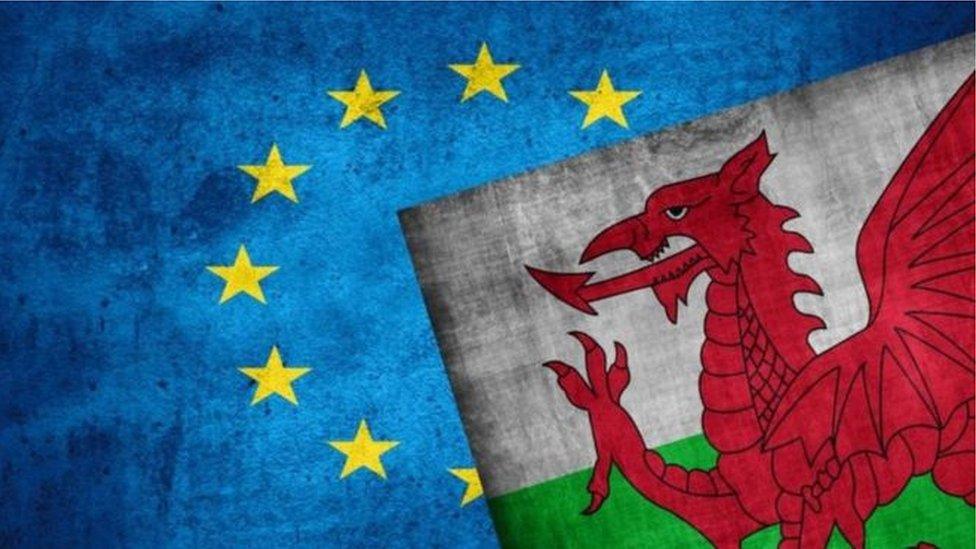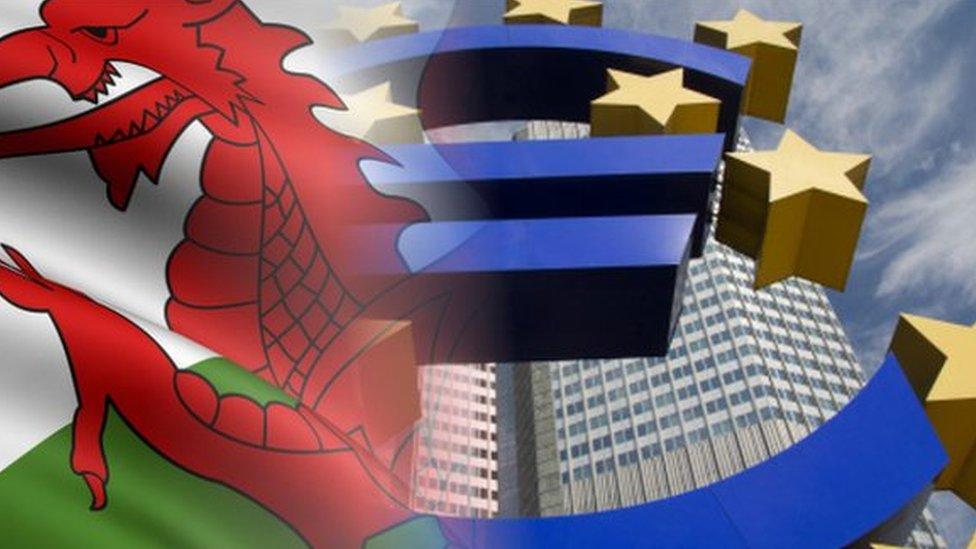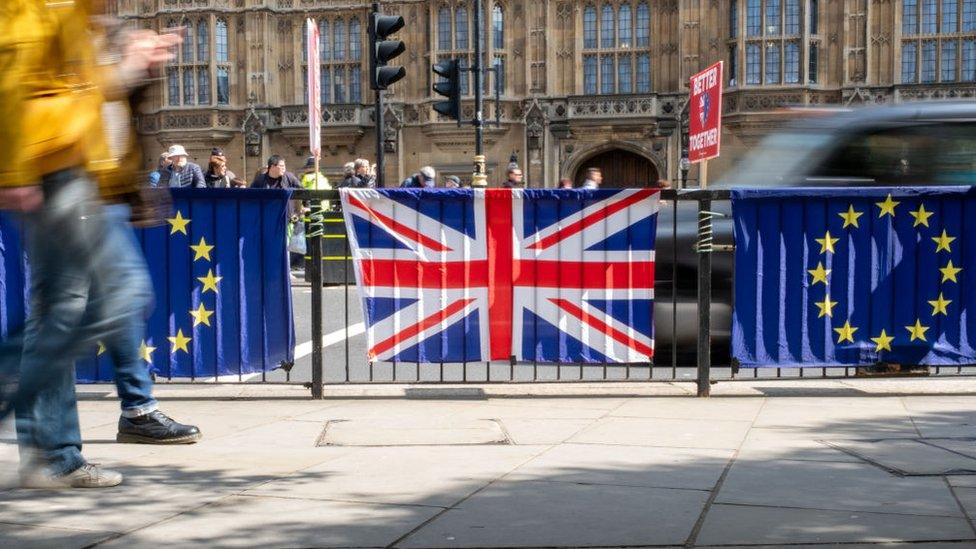Brexit: More trade talks 'give hope' to businesses in Wales
- Published
- comments

The UK's Brexit transition period ends on 31 December
The extension of Brexit trade talks gives hope because a deal is essential and possible, the business group CBI Wales has said.
The UK and EU have agreed to carry on post-Brexit trade talks after a call on Sunday between leaders.
Make UK, which represents manufacturing sectors, has called on the leaders to work to find a solution that results in a zero tariff zero quota deal.
Wales is more dependent on exports to the EU than any other UK nation.

What would happen if Brexit talks ended?
A hearing of the Welsh Affairs Select Committee earlier this month was told 61% of exports from Wales go to the EU compared with 43% of all UK exports.
Wales also has a high proportion of industries that are expected to face high tariffs if no deal is reached, namely automotive, dairy products, red meat and aerospace.
Currently, goods from Wales can be sent to customers across the EU without any tariff, or duty, added to their price.
If talks had not been extended, it would be expected to trade along World Trade Organisation lines with tariffs set at already agreed levels on goods exported from Wales.
Who is affected by Brexit talks?
The automotive sector, which employs 14,000 people in Wales, is particularly anxious about tariffs as car makers source parts from across the EU and then many of the finished vehicles are exported again.
Toyota, which makes engines on Deeside, said it would be unable to compete with plants in Europe if tariffs were added to the price of cars leaving the UK.
Mike Hawes, chief executive of the SMMT which represents the car industry, said: "We welcome the commitment from both sides to continue talking and find a way through the political impasse - we now need negotiators to finish the job and agree the deal we all so desperately need, without further delay."
The aerospace sector in Wales is closely linked to the EU, where it is routine for components and materials to cross borders on multiple occasions and half of what is produced is exported to the EU.
The Welsh lamb industry is also affected with its representative body, Hybu Cig Cymru, saying £121m of Welsh lamb is exported every year with 92% of it being sold to customers in the EU, primarily France, Italy and Germany.
Different types of meat attract different tariffs, for example the Agriculture and Horticulture Development Board said no deal would mean a tariff of 76% on lamb carcasses and 70% on beef.
- Published30 December 2020

- Published13 December 2020

- Published16 September 2019
